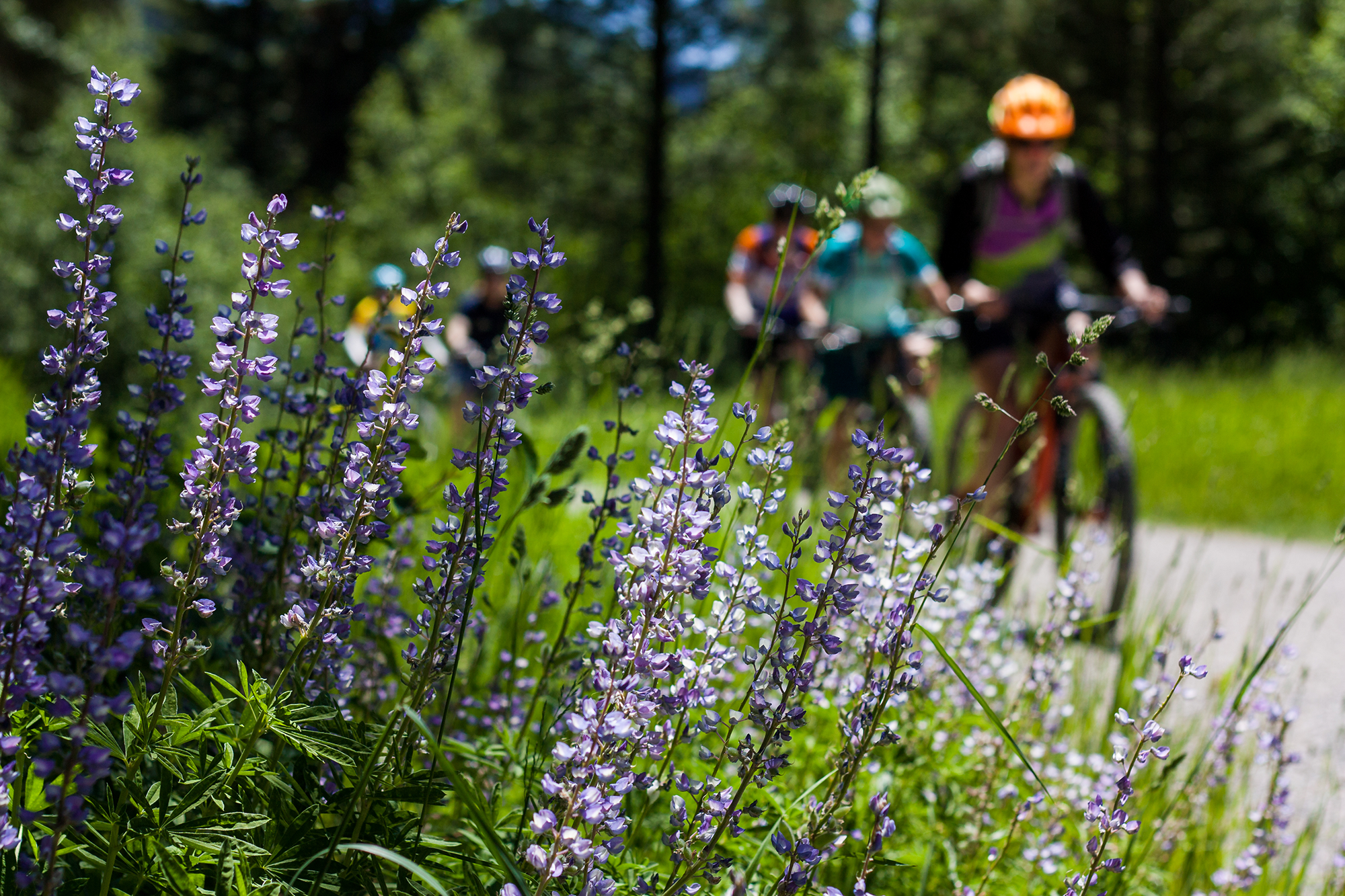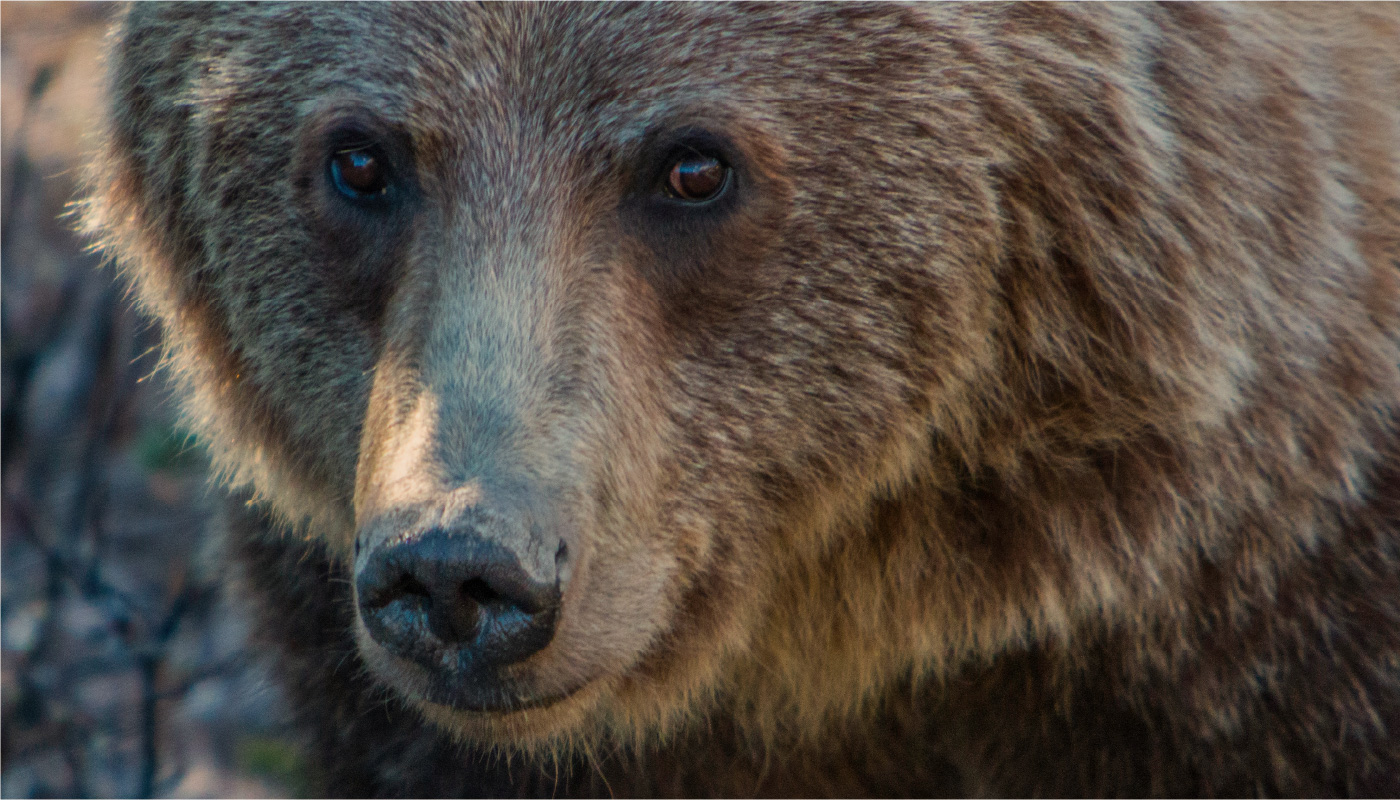Applying science to better understand wildlife and people
In late 2022, the Yellowstone to Yukon Conservation Initiative (Y2Y) was pleased to have Dr. Libby Ehlers join the team as our Conservation Scientist.
Libby is an applied ecologist with 20 years of experience in endangered species conservation with expertise in applying analytical, collaborative, programmatic and technological skills to wildlife conservation.
From montane and boreal to marine and arctic ecosystems, Libby has used her skills to identify and conserve habitats for large mammals such as wolves and caribou. She has played key research roles during her time in Yellowstone National Park, with the United States National Marine Fisheries Service and while pursuing graduate studies at universities based in both Canada and the U.S.

Most recently while at the University of Montana, she used new technologies to understand animal behavior and population dynamics for migratory caribou ranging across Alaska and the Yukon.
Having lived and worked across the Yellowstone to Yukon region, Libby is enthusiastic about protecting this special, important and diverse landscape — as well as applying science to better understand the relationships between people and nature — a critical part of Y2Y’s vision and mission.
Y2Y staff caught up with Libby to get to know her a bit more.
Meet Libby!
Y2Y: What is your role at Y2Y?
Libby: “Simply put, I communicate science, collaborate with our talented team of researchers both within and external to Y2Y, and ensure we apply science and knowledge to advance our conservation initiatives.
I foster the advancement of scientific research that supports Y2Y’s mission and assure knowledge guides where we do our work. I work collaboratively to help solve complex and timely conservation challenges and monitor our organization’s progress along the way.”
Y2Y: What sparked your interest in Y2Y?
Libby: “I’ve been following Y2Y for almost two decades and all throughout, was wildly impressed by Y2Y’s collaborative, creative, and adaptive approaches to incorporate science and knowledge in the conservation of such a large, cross-boundary landscape. As global leaders in ‘thinking big’, I know Y2Y’s vision influenced my own career path. I couldn’t be more excited to not only collaborate with our team of professionals and partners to ensure this intact large mountain region endures, but also be a part of an organization that continues to inspire communities and future leaders.”

Y2Y: When do you feel most connected to nature?
Libby: “I feel most connected to nature, like many, when I’m experiencing it firsthand. This comes in many forms for me: during a quiet solo walk or jog on a trail, sharing everyday quality time outside with loved ones, watching wildlife from our backyard, and/or when I get those lucky opportunities to do fieldwork. My favorite memories connecting me to nature are those that include wildlife observations and those I’ve been fortunate to share with my family. Highlights include observing caribou, elk, wolves, nighthawks, osprey, kingfishers, northern shovelers, raptors, sea turtles, falcons, jumping spiders, and gray whales in their preferred habitats!”
Y2Y: We have to ask: if you were an animal/plant, what would you be, and why?
Libby: “One of the first animals I was slightly obsessed with and did a science report on was the rhinoceros. I was initially attracted to them in my youth because of their size, their power, their respectful demeanor, and exotic nature as a child growing up in the U.S. Rhinos ignited my imagination and transported my mind to what it might be like to interact with dinosaurs!”
While there may not be rhinoceros’ or (living) dinosaurs here in the Yellowstone to Yukon region, we’re thrilled Dr. Libby Ehlers can contribute her experience with the myriad of species and ecosystems across these precious landscapes.


